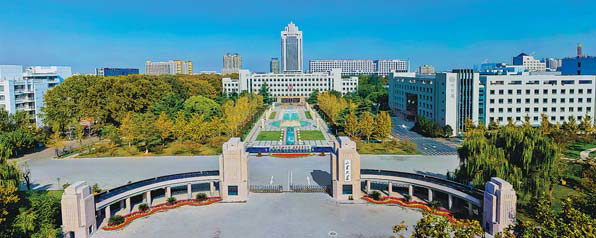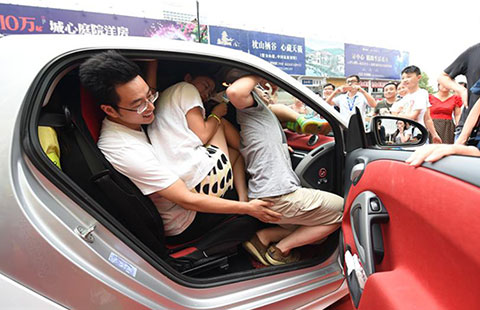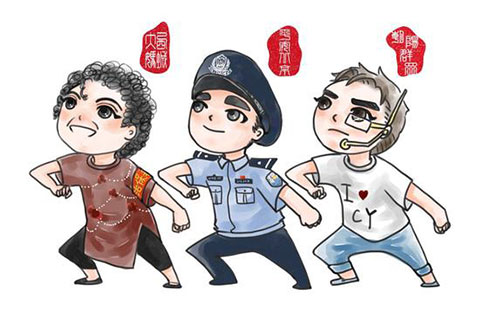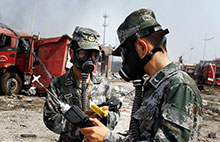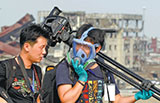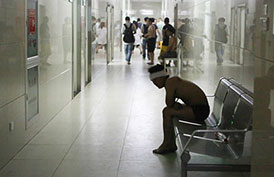City set to host global history congress
By Zhao Ruixue (China Daily) Updated: 2015-08-22 07:39
|
Shandong University, the host of the event, is the second-oldest university in China. Yang Yunlei / For China Daily |
Thousands of scholars from around the world expected to attend forthcoming event
The 22nd International Congress of Historical Sciences due to open on August 23 in Shandong will be a good platform for historians from different continents to enhance cooperation and exchanges, said Marjatta Hietala, president of the International Committee of Historical Sciences.
"It is the first time that historians from so many countries, especially developing countries, are able to attend the conference," said Hietala, who is also a professor of general history at the University of Tampere in Finland.
The congress is being held in an Asian country for the first time since it was initiated in 1900.
As the world's most influential academic event on historical sciences, it is held every five years and was only cancelled during the two world wars.
Sponsored by ICHS, which has 53 national committees, and co-organized by the Association of Chinese Historians and Shandong University, this year's congress will be held in Jinan, the capital of Shandong province, from Aug 23 to 29.
The organizing committee at Shandong University - or SDU - said 2,649 scholars from 88 countries and regions had registered for the congress by August 21, of whom 911 are foreign scholars.
"For years, we have aimed to bring the conference from a solely European orientation towards a true global community of historians," said Hietala.
"The Jinan congress will show how successful recent efforts by historians have been to avoid research too centered on the Western point of view. It will also show how successful their attempts to promote global history and transnational history have been," Robert Frank, secretary-general of ICHS, said in his letter to the press conference on the 100-day countdown to the Jinan congress held on May 15.
"The international conference is a success if it opens new aspects to history and if it strengthens the status of historians," said Hietala.
At the Jinan congress, historians will discuss new innovative themes, new methodological and thematic approaches and carry out comparative research, said Hietala.
Major themes
The Jinan congress has four major themes - China from Local Perspectives; Historicizing Emotions; Revolutions in World History: Comparisons and Connections; and Digital Turn of the History.
In addition, there will be 27 specialized themes, 18 joint sessions, 19 roundtables and conferences of 17 affiliated international organizations of ICHS, for a total of more than 150 meetings.
The sessions will cover topics such as environmental history, wealth and poverty, domestic work, tourism, football, city and space, technological progress and social development and the baby boom generation.
"Comparative and transnational aspects will be built into joint sessions," said Hietala.
A poster wall will be arranged to showcase young scholars' papers. On August 27, four experts will share their views with young scholars.
"Never before have so many junior researchers attended the conference," said Hietala.
On August 26, the congress will award the first Jaeger-LeCoultre History Prize that honors a historian or a group of historians who have distinguished themselves in the field of history through their works, publications or teaching, and have significantly contributed to the development of historical knowledge. This year's winner is French historian Serge Gruzinski.
"We build the prize in a manner comparable to the Nobel Prize or the Field Prize in Mathematics," said Hietala.
A closing ceremony will be held on August 29 at Shandong University when the host city for the 2020 congress will also be announced.
Commenting on the Jinan congress logo, which consists of the image of a Han Dynasty-style horse and carriage riding on an auspicious cloud, Hietala said, "For me the logo shows clearly the change and the turn in the history of sciences. Not only political history and history of wars but cultural history and the history of everyday life are important."
As the president, Hietala hopes the conference will discuss the role of historians and the fate of the history profession in the digitalized world.
"It seems the historical world view of the younger generation is built on popular presentations of history on media, films, TV, often written by non-professional historians. How can we keep abreast with new development? I'd like to receive an answer from different sessions," said Hietala.
zhaoruixue@chinadaily.com.cn
- Targets set for regional integration
- Path smoothed for organ donors
- Scientists ponder exoskeletons
- Beijing-Tianjin-Hebei development to see marked progress: official
- China releases organ donation guideline
- Xi calls for crews not to ease up
- Self-proclaimed Chinese qigong master arrested for illegal detention
- Online map aids visitors to capital
- China's greenhouse gas emissions 'overestimated'
- Beijing's Sanlitun area faces weekend closure
